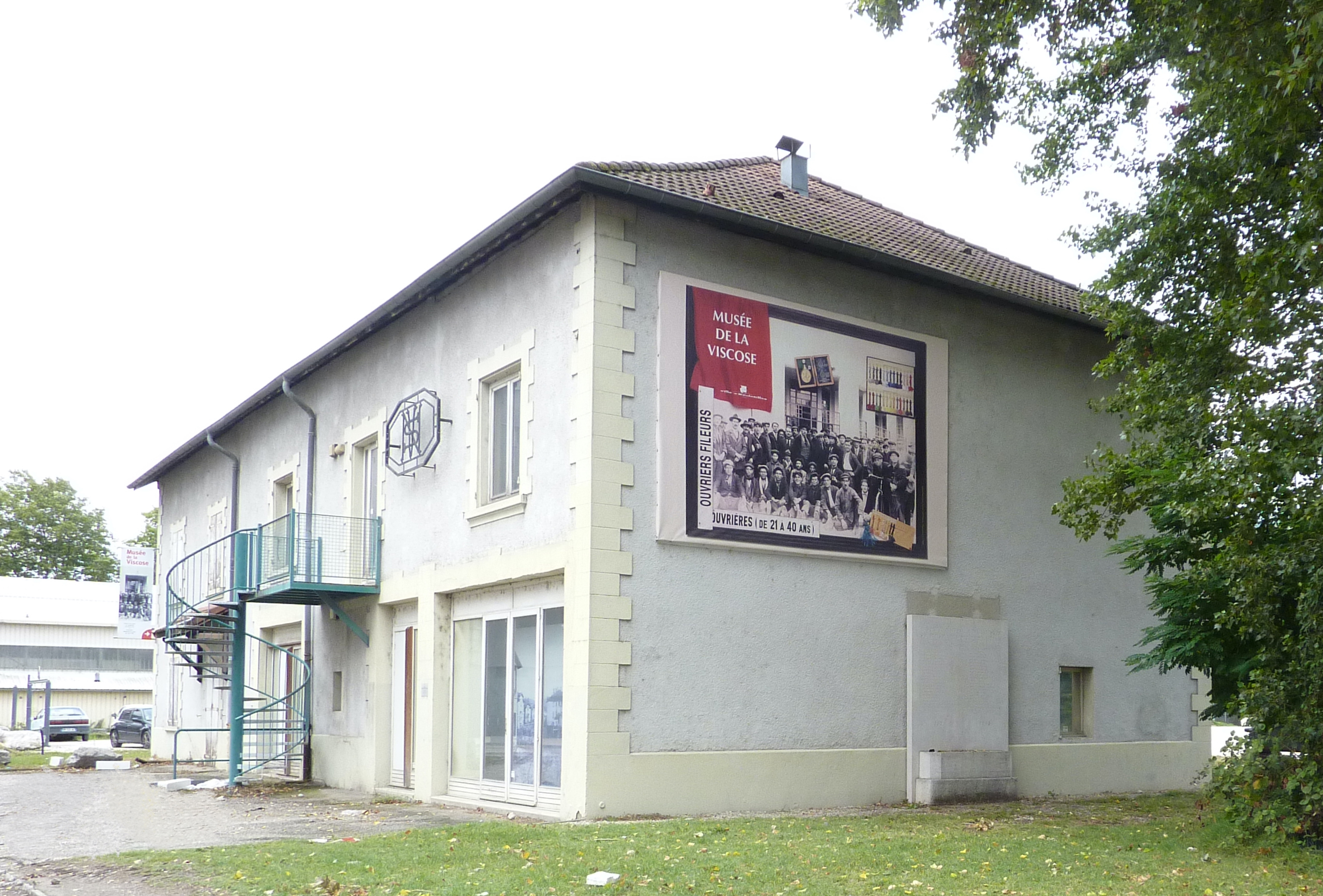
Viscose Museum
On an old industrial site, 60 years of viscose history is told: the invention of artificial silk, the manufacturing process, the work in the factory, the life of the factory workers in the industrial housing complexes.
"The viscose was above all, a huge factory, with its tall chimney, like a lighthouse. But it was also the country just outside the city, a veritable village with the factory workers' gardens, its little dances, and its Sunday dresses." The history of the Grenoble factory, in operation from 1927 to 1989.
The invention:
How could thread so fine, so soft, so brilliant, and so solid as silk be artificially produced? In 1884, in north Isere, in Vernay de charrette, the count Hilaire de Chardonnet created the first artificial textile in the world, imitating silk thread. Manufactured using wood pulp, viscose would become an important industrial product. Until the 1950s, viscose was everywhere: in ready to wear clothes, in lingerie, in furniture, even in tires. Starting in 1950, synthetic textiles began appearing, leading to the decline of artificial silk.
The industrial adventure:
From wood pulp to the finished thread, the ground floor of the museum brings to life the movements and the tasks of the viscose worker. The manufacturing line is recreated. The soaking of the wood pulp in soda, its grinding and mixing with carbon sulfur and finally its dissolving in soda water, which gives the material its amber color and honey-like consistence. The museum shows how the viscose was threaded, how it was wound, and how the meticulous inventory of threads was carried out, and how it was stored.
The human adventure:
The second floor of the museum retraces the history of the factory workers, their work, their living quarters, their strikes, leisure activities, team sports, their Resistance and Liberation. When the factory opened in 1927, Echirolles was a country village of 800 souls. The management looked to foreign countries to make up nearly its entire workforce. Close to 40 nationalities (Hungarians, Pollacks, Italians, Armenians, Russians, Yugoslavians, Portuguese, Algerians, Turks, etc.) lived together in the viscose industrial city. Co-workers and partners in everyday life, they shared the hard conditions of factory life and the relaxed ambiance of Sunday sports.
In practice
Equipments
- Toilets,
- Exhibition space,
- Car park,
- Film room,
- Coach parking
Services
- Educational visits,
- Tourist brochures,
- Tour free of charge,
- Guided tours
Theme
- Sciences and technology,
- Arts and culture,
- Industry,
- Local history
Time schedule
From 01/01/25 to 12/31/25
-
Monday :
Open
-
Tuesday :
Open
-
Wednesday :
Open
-
Thursday :
Open
-
Friday :
Open
-
Saturday :
Open
-
Sunday :
Open
Prices
Free of charge.
Go there
Latitude : 45.157106
Longitude : 5.702696
Height : 229
38130 Échirolles
Go there
Bus line 1 stop Viscose
Information mise à jour le 18/09/2024
par Office de Tourisme Grenoble Alpes









